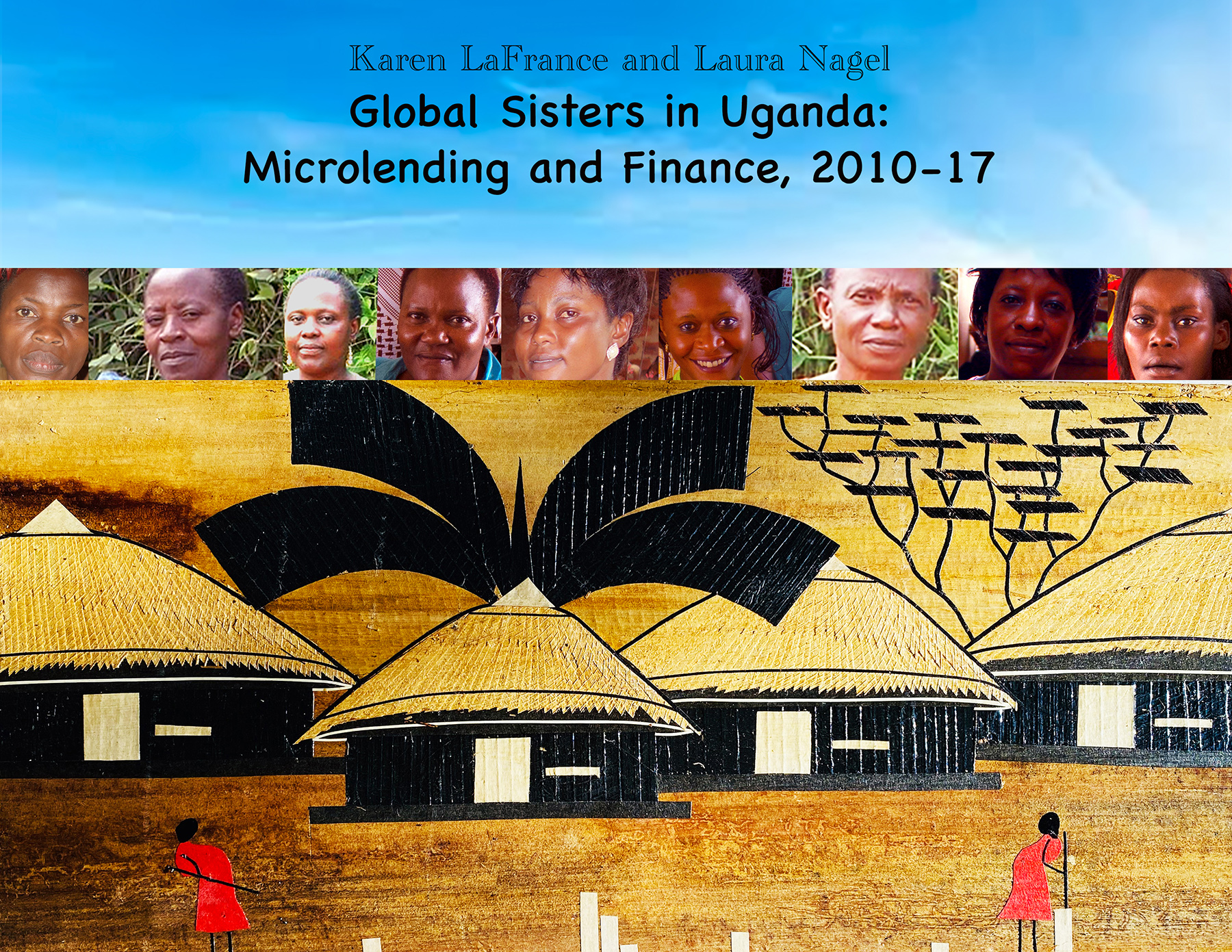A soon-to-be-released book

-
Global Sisters in Uganda: Mircrolending and Finance, 2010-2017 is the story of two American women, Karen LaFrance and Laura Nagel, who become friends early in their careers beginning in the late 70s working for the City of Pittsburgh Planning Department. There, to help the deprived, they first develop innovative planning models as “guerillas in the bureaucracy.” Though eventually separated by various family moves, they vow to be faithful friends and to look for ways to work together in the future. That opportunity finally came in 2004 when they formed a nonprofit, the International Convocation of Unitarian Universalist Women (ICUUW) to work with women in Unitarian Universalist (UU) judicatories in India, Romania, and The Philippines, and other liberal religions around the world to advance women’s human rights.
They are influenced by the Nobel-Prize-winning works of Mohammed Yunus, who found through microlending that women are key actors in promoting community stability through the growth and nurture of their families. Also, the work of Amartya Sen who developed measures of human welfare in terms of human capabilities for development. The United Nations’ Millennium Development Goals built upon this work to formulate plans to eradicate extreme poverty around the world, a nearly successful effort partially unraveled by the Covid pandemic that added nearly 100 million people to the ranks of the poor.
The primary programs of the ICUUW described in the book are three large international Convocations that involve planning sessions of attendees used to set the direction of the organization and its volunteers. The book also includes the stories of ICUUW-hosted international trips to India, The Philippines, Eastern Europe, and South America to promote citizen diplomacy.
Early on and throughout their work, women in Africa are excluded from these gatherings, despite their interest in participating and the ICUUW’s efforts to make that possible. This is a direct result of policies of the U.S. State Department that fail to recognize women’s conditions in visa applications. In response to this, ICUUW undertakes special fundraising to assist these women and children that provides capital for a small prototype microlending program in Mutundwe Village, Uganda, outside the capital of Kampala. Here all the plans come to fruition as ICUUW working through a UU on-the-ground partner, the African Rural Schools Foundation, that already had a history of working in the village and employed staff from the village. The program successfully loans through four cycles to over 40 women entrepreneurs and 44 loans. All the women participate in business training designed by ICUUW to learn the particulars of a free market system: business planning, the benefits of working through a local lender, but also the power of teaming up with others to help themselves, each other, and their community.
But why does a group of liberal religious women end up in microfinance? Because this is what women ask for, in the organization’s planning sessions. Women from around the world say the hope that America offers them is economic liberation. Despite the economic changes brought about by Covid to reshore production, we continue to be a global economy of which the U.S. is still the largest in the world, a mighty engine that powers growth. But many wonder if our democratic capitalism can provide a rising tide that “lifts all boats.” As oligarchs walk away with increasing levels of society’s wealth, economic inequality threatens the basis of our economic system.
Has increasing secularism caused us to lose sight of our moral responsibilities to each other? Today, as our political discourse deteriorates, the example of ICUUW’s work is a window into nurturing relationships that inspire women and others to follow their energies to work together for the good of their communities.
We hope you will subscribe to our newsletter to be notified the book is available.